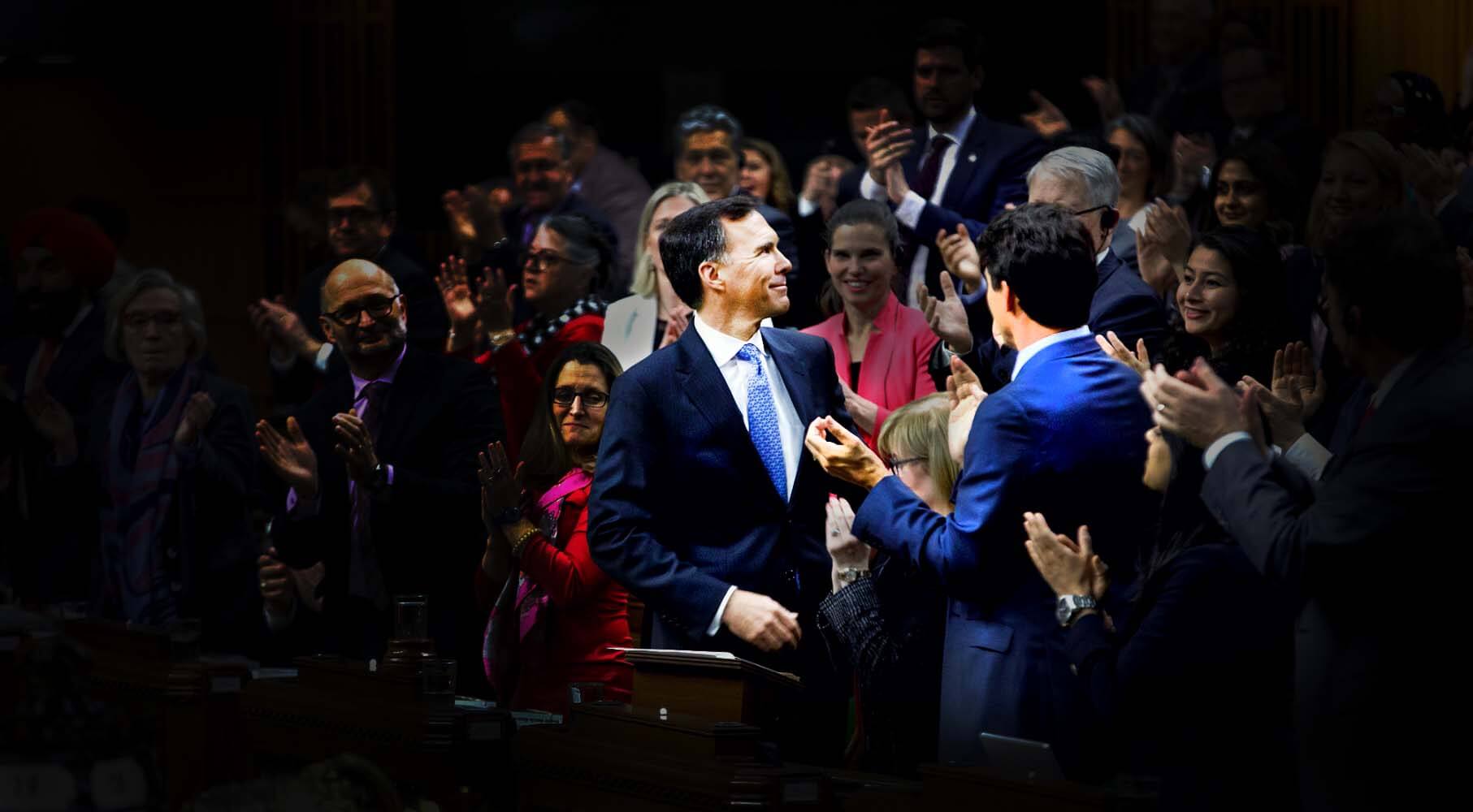 Time to get back to basic principles like equal treatment of equals, reducing economic costs to promote growth and helping the most vulnerable in society, writes Jack Mintz.
Time to get back to basic principles like equal treatment of equals, reducing economic costs to promote growth and helping the most vulnerable in society, writes Jack Mintz.
By Jack Mintz, February 11, 2020
Must every tax policy be put in class-war terms by federal ministers?
The latest is a comment made by Heritage Minister Steven Guilbeault regarding the application of GST/HST to charges made by foreign digital companies. To quote: “I think that’s about fairness. Everybody is paying the GST in Canada; I don’t see why some of the richest companies in the world shouldn’t pay GST in Canada.”
Now I suspect that Mr. Guilbeault, who was the founder of the Quebec’s environmental organization, Équiterre, is not economically illiterate. But if he thinks that the GST/HST is paid on profits earned by large digital companies like Netflix and Amazon, he is living in a dream world. The big multinational companies won’t be paying the tax. It will be Canadian consumers like you and me, as GST/HST is simply added to our bills.
In fact, most past Canadian studies have found that consumption taxes like the GST/HST are fully shifted forward onto consumers as higher prices, especially when it comes to imported goods and services. After all, Canada is a small part of the international market and companies like Amazon and Netflix won’t be doing us favour by absorbing the tax as lower profits. They will make Canadians pay more.
This government worries about the “middle class” — if they are ever able to define it — yet taxes on digital services will be borne most heavily by middle- and low-income Canadians. The reason is simple. Telecommunication charges, which can easily add up to hundreds a year, fall most heavily on those with smaller budgets. It is not surprising that 25 per cent of anglophone Canadians have dropped TV subscription services in favour of streaming services. There might be various reasons to do so but affordability is certainly one of them.
Now, don’t get me wrong. From a tax policy perspective, it would be both efficient and fair for all digital services to bear GST/HST. When we buy cable or TV streaming services from Canadian telecommunication companies, we pay GST/HST. (I noticed on my latest monthly telephone/TV bill, the tax was $42.54.) It seems quite wrong that Netflix consumers should get a tax break while consumers of Canadian telecommunication services don’t. Both Quebec and Saskatchewan now apply GST/HST to many foreign-supplied digital services. In my view, Minister Guilbeault is quite right if he argued that Netflix consumers are getting a break that others don’t.
If telecommunication charges are too high, the federal government should be looking at competition policies to reduce prices and costs rather than tax exemptions. Policies like forcing more Canadian-based programming onto telecommunication companies won’t do much to get Canadians to watch but will mean higher digital costs and higher prices on those services Canadians do want.
All this gets to a larger issue. It is time the Liberals put an end to their class rhetoric, which divides people, and get back to some basic principles for public policy like equal treatment of equals, reducing economic costs to promote growth and helping the most vulnerable in society.
Equal treatment of equals or neutrality has been a bedrock principle for tax policy over the years. If two people have the same resources to consume goods and services over time, it makes sense they should pay the same tax. If taxes are equally applied to all goods and services, we reduce distortions that result in uneconomic use of resources. Equal taxation also reduces both the government’s administrative and private sector’s compliance costs arising from the almost-impossible task of defining a good or an activity for special treatment.
The private corporate tax fiasco in 2017 illustrates the problem of focusing on class war. Instead of keeping to a simple theme of equal treatment of equals (incorporated vs. non-incorporated businesses), the federal Liberals brought out their howitzers to attack the “rich” for turning their businesses into private corporations to reduce income tax payments. This led to a revolt by many middle-class business owners who were being characterized unfairly as nefarious Canadians. The provisions themselves were so poorly drafted that many small business owners found that they would be taxed at rate above 70 per cent if they passed their wealth onto their children. And the new tax provisions would make many risky activities uneconomic. The result was a softening or scrapping of several provisions as well as adopting a further reduction in the small business rate, ultimately leading to more unequal treatment of business income.
The current focus on “middle-class” policy separates us. What about the classic concern of helping the poor get a higher paying job or support to cover basic needs? Or about the making sure those Canadians who are doing exceptionally well are encouraged to create more jobs for others rather than being attacked for their achievements? All Canadians should be recognized for their contribution to society rather than selecting only part of a population to get support.
We should argue for tax policies on the basis of unity, not division.
Jack M. Mintz is the President’s Fellow at the University of Calgary’s School of Public Policy and is a Distinguished Fellow at the Macdonald-Laurier Institute.




